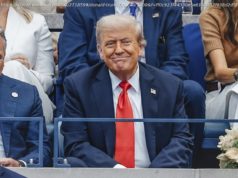There is no doubt that the disappearance and likely death of Jamal Khashoggi will now damage Saudi Arabia’s relations with the U. S. and Europe,…
There is no doubt that the disappearance and likely death of Jamal Khashoggi will now damage Saudi Arabia’s relations with the U. S. and Europe, should Riyadh be found responsible. (And as yet, Saudi Arabia has done little to convince that it is not responsible.)
They are already trading barbs. Donald Trump has said that Saudi Arabia will be ‘severely punished’ if found responsible for Khashoggi’s death, and the Saudi commentator Turki al-Dhakheel claimed in an Al-Arabiya column that ‘more than 30 potential measures’ are being discussed by the kingdom as responses to potential sanctions.
But responses from either side would not and could not be as straightforward as the rhetoric suggests.
Saudi Arabia’s relationship with the U. S. and European states – the U. K. and France in particular – is multidimensional and comprises strong institutional links between militaries and intelligence agencies as well as in the education, finance and energy sectors, among others. It is far more than a simple transactional relationship based on oil and defense contracts – though their importance cannot be disputed.
Although not strictly allies, Riyadh’s partners are engaged in a long-term association that has tied together their common security, economic and trade interests as well as, arguably, a common pursuit for stability in the Middle East. This factor alone means that the U. S. and its allies cannot simply disengage and stop providing support to Saudi Arabia – defense sales are long-term, complex investments that cannot be turned off like a switch.
At the same time, Saudi Arabia cannot simply switch arms suppliers and turn to Russia or China, as suggested by both Trump and al-Dhakheel – that is a fallacy. Not only would it take years to transition to new military operating systems, but Russia and China’s close relations with Iran would pose an immediate challenge. Buying additional pieces of military kit is very different from swapping security umbrellas.
Like it or not, Saudi Arabia and its partners need one another; they share a long-held interdependency, and the U. S. in particular now considers Riyadh to be an important plank in its effort to push back against Iran. Moreover, the U. S. and European states have invested heavily in Crown Prince Mohammed bin Salman’s (known as MBS) domestic reform project and a lot rests on its success – for the long-term stability of both the kingdom and the region. To that end, neither the U. S. nor its western European allies will wish to see the relationship with Saudi Arabia placed at risk or the reform agenda undermined.
Instead, they will need to recalibrate the relationship and set terms that place a constraint upon the adventurism of MBS, accompanied by a list of measures they wish to see from the kingdom, aimed at advancing reforms, restoring lost confidence among international investors and helping to stabilize the region.
It is a tall order. Those measures should include, among other things: Releasing women reformers, social media activists, business leaders and clerics; ending arbitrary detention; observing the rule of law; pursuing a compromise with Qatar; working towards a solution for Yemen; and, more generally, ending impulsive foreign adventurism.
However, Saudi Arabia’s spat with Canada, which led to a downgrade in diplomatic relations, withdrawal of over 8,000 Saudi students from Canadian higher education institutions and the threat of divestment, made it clear that Riyadh is in no mood to tolerate public criticism or be advised in public by Western policymakers. Therefore, the U. S. and European allies will need to use their leverage to make the Saudi leadership come to its senses.
They have a number of levers to pull. These include: downgrading diplomatic relations, withdrawing ambassadors (though there is currently no U. S. ambassador to Saudi Arabia), cancelling visits to Riyadh and postponing meetings between ministers.
King Salman would find these measures hard to resist, given his natural inclination towards a more conservative and consensual approach to decision-making and the fact that MBS is now rocking the family project.
If the above measures do not work, then key institutions, such as the U. S. Congress and European national parliaments, will push for much harder measures, including sanctions against senior decision-makers, which would ultimately work against the collective interests of Saudi Arabia and its partners. These would cause severe damage to the relationship and constitute an act of self-harm for all countries involved, especially Saudi Arabia, which is locked into geopolitical conflict with Iran, Turkey and Qatar, in addition to a war in Yemen.
Therefore, it is important that the US and European allies move beyond rhetoric and implement sustained diplomatic measures aimed at persuading King Salman that, for his country’s future, he has no choice other than to continue down the path of reform.
Neil Quilliam is a senior research fellow with the Middle East and North Africa (MENA) Programme at Chatham House, the Royal Institute of International Affairs, in London. He has lived in Saudi Arabia, Jordan and UAE, and has travelled extensively around the MENA region, working on a variety of development, education and research projects.






